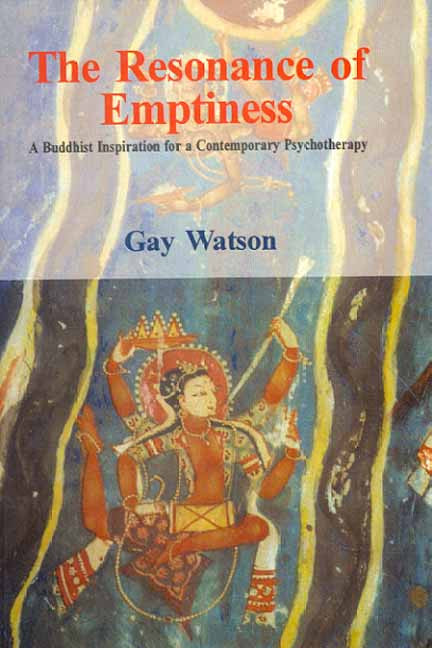The Resonance of Emptiness: A Buddhist Inspiration for a contemporary Psychotherapy
![]() 100% Genuine New Books
100% Genuine New Books
![]() Fast Shipping with Tracking Number
Fast Shipping with Tracking Number
Secure Payments via UPI, Cards & Wallets
![]() Trusted Support & Easy Returns
Trusted Support & Easy Returns
The Resonance of Emptiness: A Buddhist Inspiration for a contemporary Psychotherapy - Hardcover is backordered and will ship as soon as it is back in stock.
ISBN : 9788120818088, 8120818083
Year of Publication : 2001
Edition : 1st
No. of Pages : 100
Language : English
Condition : New
Publisher: Motilal Banarsidass Publishing House
Free shipping on orders over Rs. 249
Free shipping on orders over Rs. 249
We offer free shipping on orders above Rs. 249 in India. For orders below this threshold, a nominal shipping fee may apply, which will be clearly indicated during the checkout process.
How long will it take to receive my order?
How long will it take to receive my order?
The delivery time varies depending on your location. Generally, orders are processed and shipped within 1-3 business days. Once shipped, you can track and expect your order to arrive within 3-7 business days (the duration may vary depending on your location). For more information, please refer to our shipping policy.
Chat with a Real Person
Chat with a Real Person
WhatsApp chat is dedicated to assisting with after-sales queries regarding delivery, returns, and payments. Click below to initiate chat with us on WhatsApp:
[Bookstaa WhatsApp Chat].
For all other inquiries, please visit our customer support page or email us at support@bookstaa.com.
Couldn't load pickup availability
Description
Description
This book presents an exploration of Buddhist philosophy and practice as a potential resource for an approach to psycho-therapy which is responsive to the needs of its time and context, and attempts to open up a three-way dialogue between Buddhism, psychotherapy and contemporary discourse to reveal a meaningful theory and practive for a contemporary psychotherapy. This book raises the question of what it is in Buddhism itself that provides such a rich resource for psychotherapy. Gay Watson firmly places her exploration of these themes within the context of contempoorary life and thought, as a response to the pathologies, physical and intellectual, of our time. Organized according to the traditional Tibetan plan of Ground, Path and Fruition, the book first presents a brief survey of Western psychotherapies followed by an introduction to Buddhist views, with particular reference to those most relevant to psychotherapy. Path considers the two major branches of the Buddhist way, ethics and meditation, in the context of contemporary life and psychotherapy. Fruition compares the goal of Buddhism and psychotherapy and subsequently explores the implications of adopting Buddhist influence in the light of contemporary discourse and of the experienced domains of body, speech and mind. Finally, the lineaments of a contemporary Buddhist-inspired psychotherapy are suggested. The book will be of great interest to those concerned with the translation of Buddhism into contemporary life and also to students of psychotherapy and its expansion, particularly into spiritual and transpersonal dimensions.
About the Publisher

Motilal Banarsidass Publishing House (MLBD)
Motilal Banarsidass Publishing House, popularly known as MLBD, is one of the oldest and most prestigious publishing houses in India, established in 1903.
With over a century of legacy, MLBD has been at the forefront of publishing scholarly works in the fields of Indology, Sanskrit, philosophy, religion, spirituality, yoga, Buddhism, and Jainism.
Renowned for its authenticity and academic rigour, MLBD's books are trusted by researchers, scholars, and readers across the globe.
With more than 5,000 titles in circulation, MLBD continues to uphold its commitment to preserving and promoting India’s rich cultural and philosophical heritage.
Bookstaa is an authorized distributor of MLBD books, ensuring 100% genuine and original publications for our readers.

